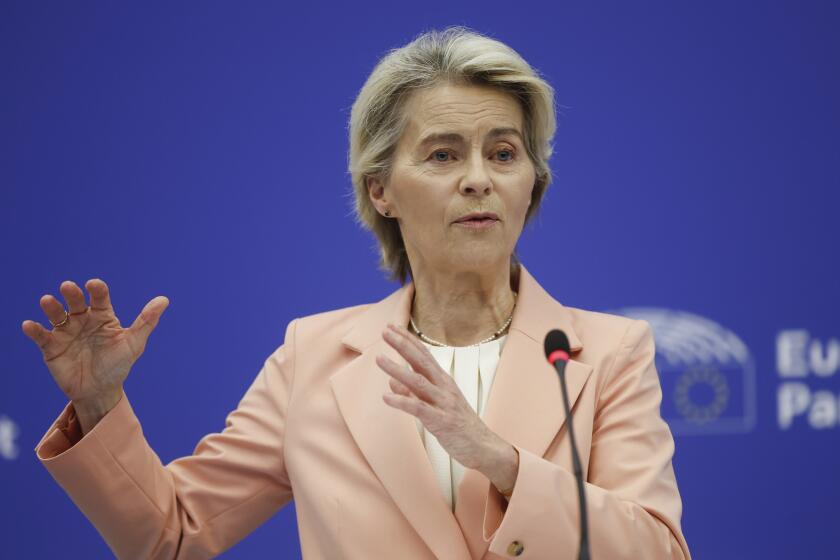Banned Iraq candidates can run in election
Hundreds of candidates accused of having ties to the outlawed Baath Party will be allowed to participate in Iraq’s upcoming election after a decision Wednesday by judges to defer hearing their appeals until after the poll.
The step may help ease political tensions in the run-up to the elections, and closely matches a U.S. proposal pressed recently by Vice President Joe Biden.
The 500 or so candidates affected could still be barred from taking their seats if they are elected to parliament, potentially creating a fresh political crisis. But the ruling will avert the threat of a boycott of the polls by Iraq’s minority Sunni Arabs.
The seven-judge panel responsible for hearing the appeals of those barred decided that it did not have time to investigate all the cases before the March 7 poll.
The decision to bar the candidates, who belong mostly to parties opposed to the ruling Shiite Muslim religious coalition, plunged Iraq into political turmoil and threatened to reignite the sectarian tensions that tore the country apart during the last decade. Though the list includes both Sunnis and Shiites, most belong to secular parties and the most prominent candidates are Sunnis.
The ruling still has to be upheld by Iraq’s electoral commission, which is due to publish the final list of candidates within the coming days.
Ali Lami, executive director of the separate Accountability and Justice Commission, which ordered the disbarments, condemned the judges’ decision as representing “American interference” in Iraqi politics, and vowed to fight it in the courts.
U.S. officials have charged that Lami has close ties to Iran. The chairman of the accountability commission is Ahmad Chalabi, who was once a Pentagon favorite but fell from grace after he was suspected of passing information to Iran.
The ruling appeared to represent the crystallization of intensive backroom diplomacy by U.S. and United Nations officials to avert a crisis that could have called into question the legitimacy of the entire poll.
“It shows the U.S. still has influence here,” said Mahmoud Othman, an independent Kurdish legislator.
Though the judges on the panel are supposed to be independent, “this is Iraq,” he added. “Things can be arranged.”
U.S. officials are hoping that widespread participation in the poll by Sunnis, some of whom boycotted national elections in 2005, will herald a new government that enjoys broad Iraqi support. That could help pave the way for a peaceful withdrawal of most U.S. combat troops by the end of August.
But in a reminder of the dangers that remain, a suicide bomber killed 20 people and injured more than 100 on Wednesday in an attack on Shiite pilgrims gathered in the holy city of Karbala.
It was the seventh suicide bombing in Iraq in nine days, signaling a sharp escalation in violence that many Iraqis fear will intensify as the March election approaches.
Police said the explosives were contained in a motorized cart whose driver detonated them among a crowd of pilgrims gathered in the city.
Times staff writer Raheem Salman contributed to this report.
More to Read
Sign up for Essential California
The most important California stories and recommendations in your inbox every morning.
You may occasionally receive promotional content from the Los Angeles Times.










